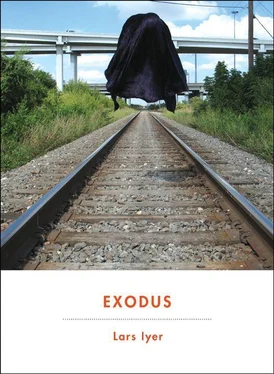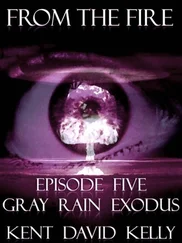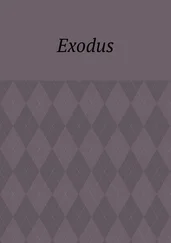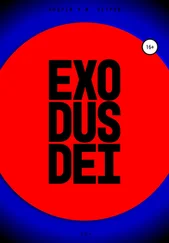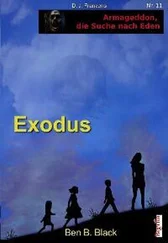How it confuses W., for whom the story of my life, otherwise, is relatively clear. The monks took me in: but why? why me? What recommended me to them ? What, when I had no idea of what living a spiritual life might mean?
Of course, he too has lived with monks, W. says. Over a long summer on Caldey Island, he even thought of becoming one. But, as always on this topic, W. says nothing more. I’d jot it all down in my notebook, he says, and put it all up on the ‘net. A veil must be drawn over some things, W. says. A kind of silence must be observed — and W. took a vow of silence, back when he was thinking of joining the Trappists.
‘There are moments in one’s life … ah, how can you explain it to an idiot?’, W. says, with particular fervour. ‘Sometimes, you’re vouchsafed something … Sometimes …’ No, no, he won’t try and explain, he says.
And isn’t that where it began, W.’s real sense of religion, of religiosity, which has nothing to do with sighing after a world beyond this one? Isn’t that where he understood that the question of religion wasn’t to be left with philosophers and metaphysicians, and addressed in terms of philosophical and metaphysical conceptions of religion?
He was silent, W. says. He spent whole days in solitary prayer. In the time between services, when they were allowed to converse, he would wander the beach with an older monk, a proper holy man, meditating upon faith and upon the essence of religion, W. says.
‘What does “God” mean?’, W. asked the holy man, like a child. ‘What is religion?’ Sometimes you have to ask the simplest questions, W. says. And the answers he received …? No, he won’t tell me, W. says. He won’t breathe a word.
Some conversations change everything, W. says. It’s not the content of what is said. Nor is it a matter of intensity. Seriousness, yes. That’s essential. Absolute seriousness. But seriousness can be light! , W. says. Speaking seriously can be ease itself! His time with the older monk was spent in easy conversation, W. says. They talked about ordinary things, concrete things. All really profound conversations are about ordinary things, W. says.
Opposite the university, under the motorway bridge. A junkie in a sky-blue jumper asks for money for chippies . W. scrutinises him closely as he gives him some change. — ‘You can never be sure’, W. says. ‘He might have been a ragged philosopher ’.
I quiz W. on the strange superstitions of the former Essex postgraduates . Is it really true that you have to leave your back door open in case a former associate raps on your window? Is it really true that a place must always be left at your table, in case a former Essex postgraduate arrives unbidden for a meal? But W. keeps quiet.
I ask W. whether it’s true that there is a secret fund into which the more solvent former Essex postgraduates pay, and upon which their poorer fellows might draw. I ask whether the rumours are true about the University in Hiding , to which all the former Essex postgraduates belong. Are there really secret handshakes and secret winks — certain signs that allow one former Essex postgraduate to recognise another, even though they may never have met at their alma mater? Was W. looking for a secret wink from the junkie in the sky-blue jumper?
Ah, how can he explain it to me, what it means to be a former Essex postgraduate? W. wonders. How can he make me understand?
W. recalls the legend of Chouchani, the Talmudic master who taught both Levinas and Weisel. No one knows where Chouchani was born, W. says. No one knows where he grew up. No one knows where he acquired his immense learning, which did not concern only Judaism and Jewish matters, but mathematics, too, and philosophy, and the arts. He spoke all the living languages of Europe, W. says, and a few dead ones besides.
Chouchani lived like a tramp, W. says, unkempt, wandering, staying for a while with those he took as his pupils, before moving on. And you had no choice about Chouchani taking you as his pupil, W. says. He selected you , not you him! He’d bang on your window; he’d demand to be admitted to your home. And there he would stay, night after night. There, demanding nothing but attention to the intellectual matters at hand. Nothing but study, and seriousness in study. And then, just like that — did he think you’d learnt enough? did he suppose you’d reached your limits? — he disappeared. Just like that, he was gone, his room cleared — disappeared. Chouchani was the Mary Poppins of Talmudic studies, W. says.
We can trace Chouchani’s path, W. says. New York. Strasbourg. Jerusalem. And didn’t he die in Montevideo? Isn’t it in Uruguay that his tombstone can be found, and on it, the lines, ‘ His birth and his life are bound up in a secret ’?
Think of Chouchani’s mastery of the Bible! W. demands. Bring to mind Chouchani’s knowledge of the two Talmuds, the Midrash, the Zohar and the work of Maimonides! W. exhorts. Contemplate his mastery of the latest theories from mathematics, and from physics, and his total knowledge of literature, ancient and contemporary, and his boundless philosophical learning!
And now, W. says, imagine an entire generation of thinkers who rose to these heights! Imagine an entire generation of Essex postgraduates in whom thought was burning as brightly as that!
How harsh he was, Chouchani! W. says. And how harsh they were with one another, the Essex postgraduates! How merciless in debate Chouchani was! W. says. But the Essex postgraduates were merciless, too; they, too, would let nothing pass! How serious the great Talmudist was! W. says. But the Essex postgraduates, too, were serious! Thought, to them, was always a matter of life and death!
Did Chouchani hold a knife to the throat of one of his pupils, who was slow to understand the repercussions of Tossafot’s commentary? W. wonders. Well, a knife was held to his throat in Essex University Student Union Bar, he says, because of some misunderstanding or another on his part, some obtuseness about the B-deduction in Kant’s Critique of Pure Reason , or about the syntheses of time in Deleuze’s Difference and Repetition . Rightly so! W. says. He needed to be taught a lesson. He needed to learn!
And didn’t W. in his turn, hold a knife to the throats of younger Essex postgraduates? W. should hold a knife to my throat, he says. Not because I would be capable of reaching the same intellectual heights as an Essex postgraduate, W. says. But to give me an idea of what it meant to be an Essex postgraduate.
That’s another superstition: that every former Essex postgraduate keeps a knife in the house at all times, blade sharpened. A knife that might be used against them if they become a betrayer of thought , or that they might use on one of thought’s betrayers. I’d better watch it when I visit him, W. says.
Manchester was good to us, W. says, as we wait for our train, back at Piccadilly Station. It was good. We gave our talk, fielded questions, we didn’t get lynched …
Capitalism has triumphed, W. told our audience. Capitalism has conquered the external world, and now it’s going to conquer the internal one, too. The very intimacy of our lives , that’s capitalism’s new frontier, W. said. Our private ideas, our tastes, our moods : that’s what capitalism has set out to conquer now.
In the end, our loves and friendships will become capitalist loves and capitalist friendships, W. told our audience. Our innermost hopes and dreams will become capitalist hopes and capitalist dreams. Our sighs will become capitalist sighs. Our wistfulness, capitalist wistfulness. Even our philosophy, opposed as it is to capitalism in every way, will become capitalist philosophy! W. said. Even our thoughts will become capitalist thoughts!
Читать дальше
